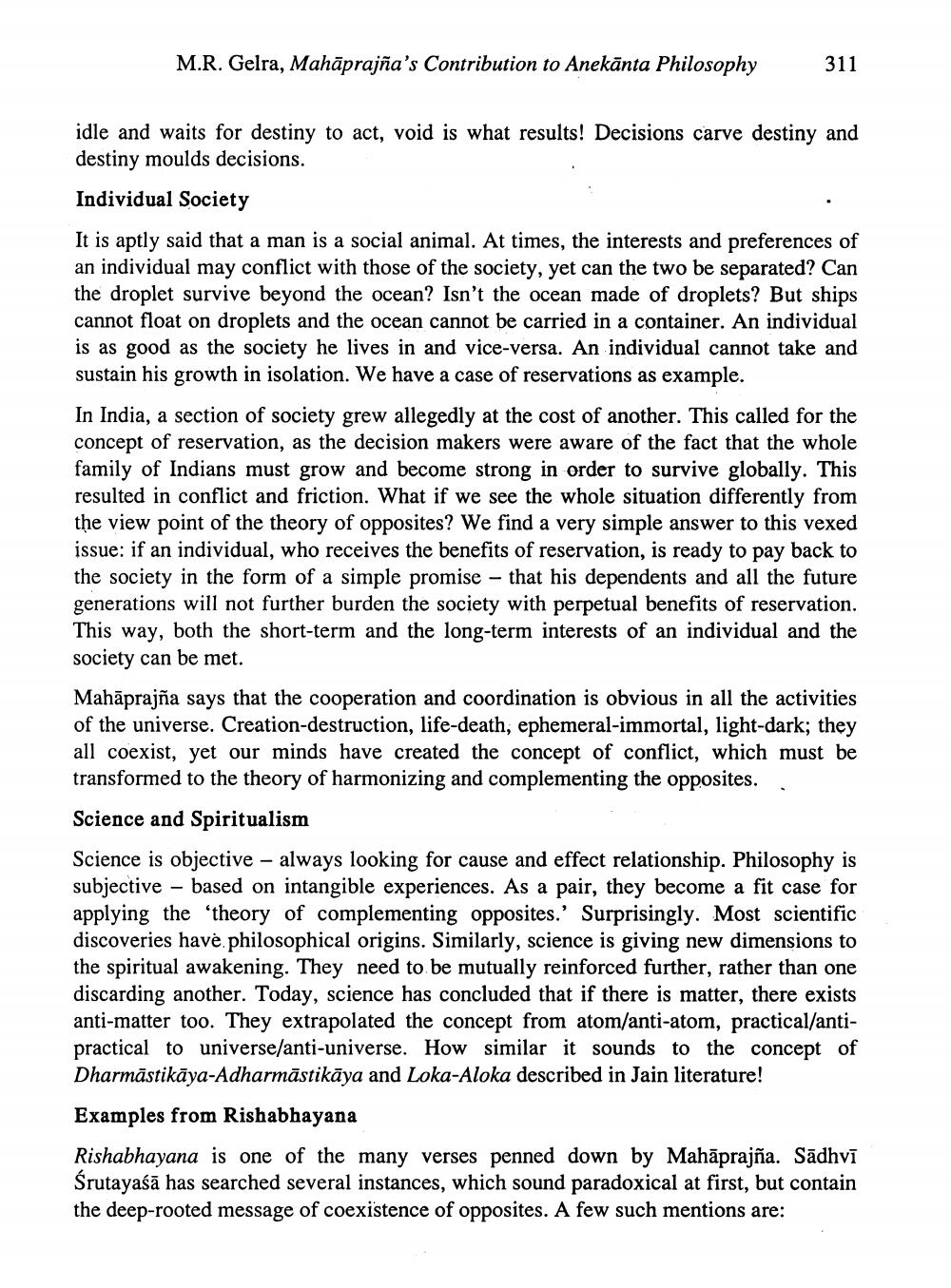________________
M.R. Gelra, Mahāprajña's Contribution to Anekānta Philosophy
311
idle and waits for destiny to act, void is what results! Decisions carve destiny and destiny moulds decisions.
Individual Society
It is aptly said that a man is a social animal. At times, the interests and preferences of an individual may conflict with those of the society, yet can the two be separated? Can the droplet survive beyond the ocean? Isn't the ocean made of droplets? But ships cannot float on droplets and the ocean cannot be carried in a container. An individual is as good as the society he lives in and vice-versa. An individual cannot take and sustain his growth in isolation. We have a case of reservations as example. In India, a section of society grew allegedly at the cost of another. This called for the concept of reservation, as the decision makers were aware of the fact that the whole family of Indians must grow and become strong in order to survive globally. This resulted in conflict and friction. What if we see the whole situation differently from the view point of the theory of opposites? We find a very simple answer to this vexed issue: if an individual, who receives the benefits of reservation, is ready to pay back to the society in the form of a simple promise - that his dependents and all the future generations will not further burden the society with perpetual benefits of reservation. This way, both the short-term and the long-term interests of an individual and the society can be met. Mahāprajña says that the cooperation and coordination is obvious in all the activities of the universe. Creation-destruction, life-death, ephemeral-immortal, light-dark; they all coexist, yet our minds have created the concept of conflict, which must be transformed to the theory of harmonizing and complementing the opposites. Science and Spiritualism
Science is objective - always looking for cause and effect relationship. Philosophy is subjective - based on intangible experiences. As a pair, they become a fit case for applying the theory of complementing opposites. Surprisingly. Most scientific discoveries have philosophical origins. Similarly, science is giving new dimensions to the spiritual awakening. They need to be mutually reinforced further, rather than one discarding another. Today, science has concluded that if there is matter, there exists anti-matter too. They extrapolated the concept from atom/anti-atom, practical/antipractical to universe/anti-universe. How similar it sounds to the concept of Dharmāstikāya-Adharmāstikāya and Loka-Aloka described in Jain literature!
Examples from Rishabhayana
Rishabhayana is one of the many verses penned down by Mahāprajña. Sādhvī Śrutayaśā has searched several instances, which sound paradoxical at first, but contain the deep-rooted message of coexistence of opposites. A few such mentions are:




